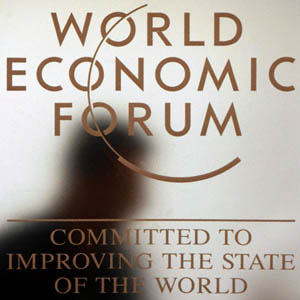New Ideas for Global Economic Governance
By Ali Kharazi

Last week marked another annual session of the World Economic Forum at Davos, Switzerland. This year’s event was strikingly different in two ways. Firstly, the forum had less glamour, Hollywood celebrities, and photo opportunities. Secondly, the forum had a more serious vibe where all participants seemingly wanting to discuss the recent turmoil and the future outlook of the global economy.
It may be the faith of mankind to take effective action in changing regulatory financial policy only after an economic shock has taken place. This is clearly evident if one is to look at the regulatory responses after the most notable economic crisis of the past century: the Dutch Tulip manias (1634-1637), the British South Sea Bubble (1717-1719), the French Mississippi Company collapse (1717-1720), the Great Depression of America (1929-1939), and the Argentine Economic Crises (1999-2002). The global economic crisis of 2007-2008, which continues to reverberate as more revelations are made, can also be a similar example where structural economic policy changes are made. The only difference however, is that this time a global policy and regulatory reformulation is warranted.
So what has been the talk of the town at Davos? Gordon Brown, the UK Prime Minister, seemed to have summed up everyone’s thoughts at the summit and hinted at possible policy changes in an article with the Financial Times on January 24th and also in a mini-summit with the EU-4 at 10 Downing Street on January 29th. Brown has questioned the logic of allowing global financial flows while still maintaining national supervisory and regulatory financial institutions. Indeed, the major lesson learnt from the domino effect of the US subprime mortgage crises on world markets is that undervaluing of risk in one country will inevitably affect other national markets. The unprecedented coordinated cash injection by five central banks in December is an attestation to this fact. However, the question remains: Who should be in charge of coordinating the regulation and supervision of financial institutions across national borders?
The role of such a global financial watchdog can be carved out through the reforming of current international economic institutions. In this light, Brown has suggested the IMF to take the lead and be entrusted with the surveillance of the global economy. The IMF however is an institution whose credibility has strongly been questioned and entrusting it with such a critical role is simply controversial. The problem stems from the lack of a truly open and democratic governance of our global economy and in this light a much radical transformation of international institutions is needed. The holy trinity of world economic governance, the WTO, World Bank, and IMF, were born after the Bretton Woods conference of 1944 with the aim of creating a dynamic global economy. However, the prevailing elitism of developed countries at these institutions combined with protectionist policies has reflected little of what the UN has termed “the evolution of different economies”.
A successful transformation of global economic governance should include more decision making power for developing countries, more international supervision, and the return of the currently sidelined UN into the center of world economic policy making. The existence of global economy is undeniable and cosmetic changes to international institutes as proposed will only postpone more critical economic crises.

